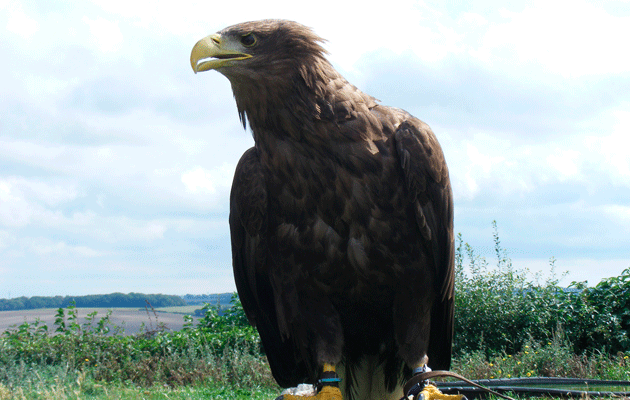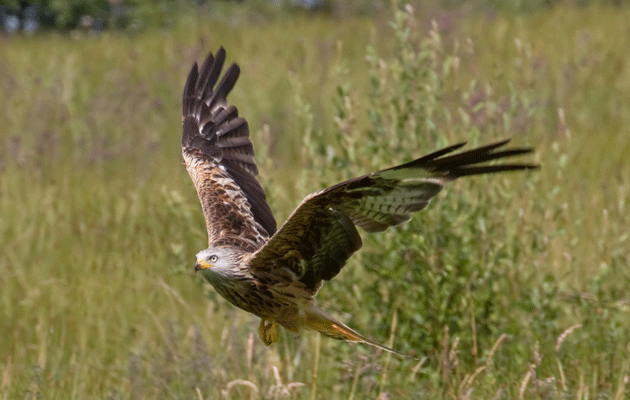Sharpshooter

So, badgers are too numerous to cull. Have I got that right? Many of the people who are opposed to badger culling are motivated, at least in part, by a belief that these are rare animals. I heard one opponent say, on the radio, ?I?ve never seen one.? Yet, when the latest survey figures show that there are actually far more badgers than previously thought, the cull gets cancelled (for this year, anyway).
It seems to be a one-way bet, doesn?t it? If there aren?t many badgers, you cannot be allowed to cull them because you would be reducing their population too much. Yet, on the other hand, if there are shedloads of badgers, you cannot be allowed to cull them because, er, you won?t be able to kill enough to make the cull worthwhile?
One thing I want to know is this: how did Natural England and DEFRA get so far down the culling route before they realised that there were ?too many? badgers in the pilot cull areas? Can?t they count big, bumbling, black-and-white critters? Or was there a sudden population explosion in the weeks leading up to the planned cull?
The weasels at Whitehall
Moreover, given that the last-minute decision to postpone the cull was leaked to the media ahead of any offi cial announcement, you do have to wonder whether there are a few less-than-impartial civil servants lurking about in DEFRA. Perhaps the folk in question, who spend their working lives trundling up and down a vast network of gloomy corridors within Whitehall, have a natural affi nity with giant weasels.
We should also note the jubilant reaction of certain conservation charities, including some Wildlife Trusts. These bodies owe their lucrative charitable status to their registered charitable objects, as approved by the Charity Commission. In this context, conservation is not the same as animal welfare, let alone animal rights. The conservation status of the badger is not the slightest bit endangered. There are loads of them ? even more than previously thought. So what, exactly, are Wildlife Trusts celebrating? The fact that hordes of diseased badgers are going to be left to die in agony?
Heavy punishment for a mistake
Which brings me on to the subject of animal welfare. I see that the RSPCA recently prosecuted a woman from Bournemouth who gave her cat paracetamol. The woman fed her pet a tablet of the painkiller after seeing it limping. When it got worse, her daughter called the RSPCA for advice. Unfortunately, the cat died. The owner was then prosecuted for causing it unnecessary suffering. She was successfully convicted under the 2006 Animal Welfare Act and ordered to pay £280 in costs.
It emerges that cats cannot metabolise paracetamol. Did you know that? Well, you should, because not knowing this sort of thing means you may be a potential animal abuser in the eyes of the RSPCA.
This seems just a trifle harsh, doesn?t it? It must be blindingly obvious that the woman thought she was doing the right thing. She was trying to alleviate an animal?s suffering. Okay, she got it wrong ? but should she really be prosecuted for that? Should we not even try to help injured animals in case we make a mistake and the RSPCA finds out?
Presumably, if the woman had simply shot the injured cat, killing it cleanly and thereby putting it out of its misery, the RSPCA wouldn?t have had a case to pursue. After all, the charity itself kills thousands of cats and dogs every year (some of them perfectly healthy, too).
In a recent column (24 October), I explored the state?s apparent desire to keep a monopoly over the use of lawful force. Does the RSPCA, in a similar vein, see it itself being the sole arbiter of all matters concerning the lives of animals? Is that what all the hoo-ha ? whether focused on sick badgers or sick cats ? is really about?
Have your say: if you have a view on a current news topic, send it, in no more than 500 words, to [email protected].
What is YOUR opinion?
Join other ST readers in our forums to discuss your views.
Like this article? Mark this page on a social bookmarking website…
![]()
What are social bookmarking sites?








